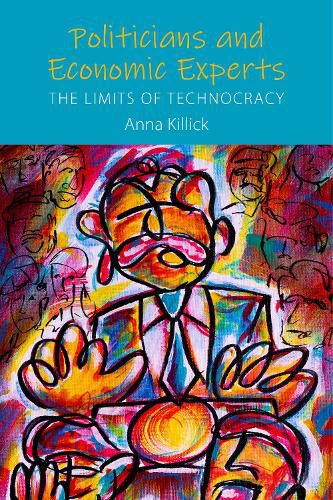Readings Newsletter
Become a Readings Member to make your shopping experience even easier.
Sign in or sign up for free!
You’re not far away from qualifying for FREE standard shipping within Australia
You’ve qualified for FREE standard shipping within Australia
The cart is loading…






When it comes to economic policy-making, should politicians be responsive to voters, or responsible to future generations? The need to find economic solutions to the climate crisis is leading many to call for a greater role for experts to guide politicians, a new economic technocracy . Based on interviews with politicians and advisers from France, Germany, Denmark, the UK and USA, this book reveals why deferring to the experts is neither viable nor desirable, and how we have to trust politicians to take the lead role in solving economic problems.
The book provides an in-depth analysis of how politicians from the main parties think about economics and economists. It finds that politicians have clear and strong moral visions for what they want to achieve economically, visions that are strikingly diverse and contested. Although many are excellent communicators, only some have sought to convey complicated economic messages to voters, with many increasingly uneasy about technocracy undermining democracy. The book reveals how politicians judge the need to be both responsive and responsible and what role expert economic opinion plays in that balancing act.
$9.00 standard shipping within Australia
FREE standard shipping within Australia for orders over $100.00
Express & International shipping calculated at checkout
When it comes to economic policy-making, should politicians be responsive to voters, or responsible to future generations? The need to find economic solutions to the climate crisis is leading many to call for a greater role for experts to guide politicians, a new economic technocracy . Based on interviews with politicians and advisers from France, Germany, Denmark, the UK and USA, this book reveals why deferring to the experts is neither viable nor desirable, and how we have to trust politicians to take the lead role in solving economic problems.
The book provides an in-depth analysis of how politicians from the main parties think about economics and economists. It finds that politicians have clear and strong moral visions for what they want to achieve economically, visions that are strikingly diverse and contested. Although many are excellent communicators, only some have sought to convey complicated economic messages to voters, with many increasingly uneasy about technocracy undermining democracy. The book reveals how politicians judge the need to be both responsive and responsible and what role expert economic opinion plays in that balancing act.